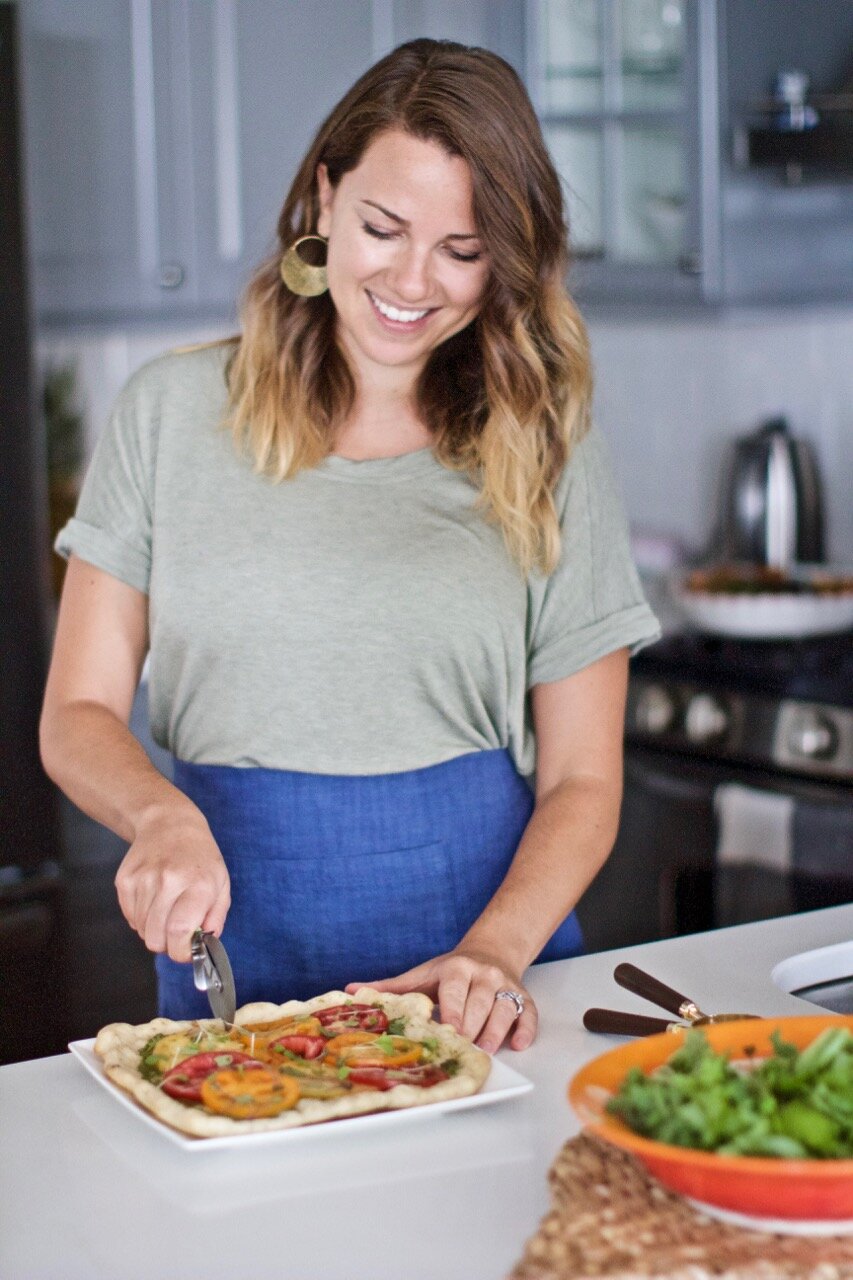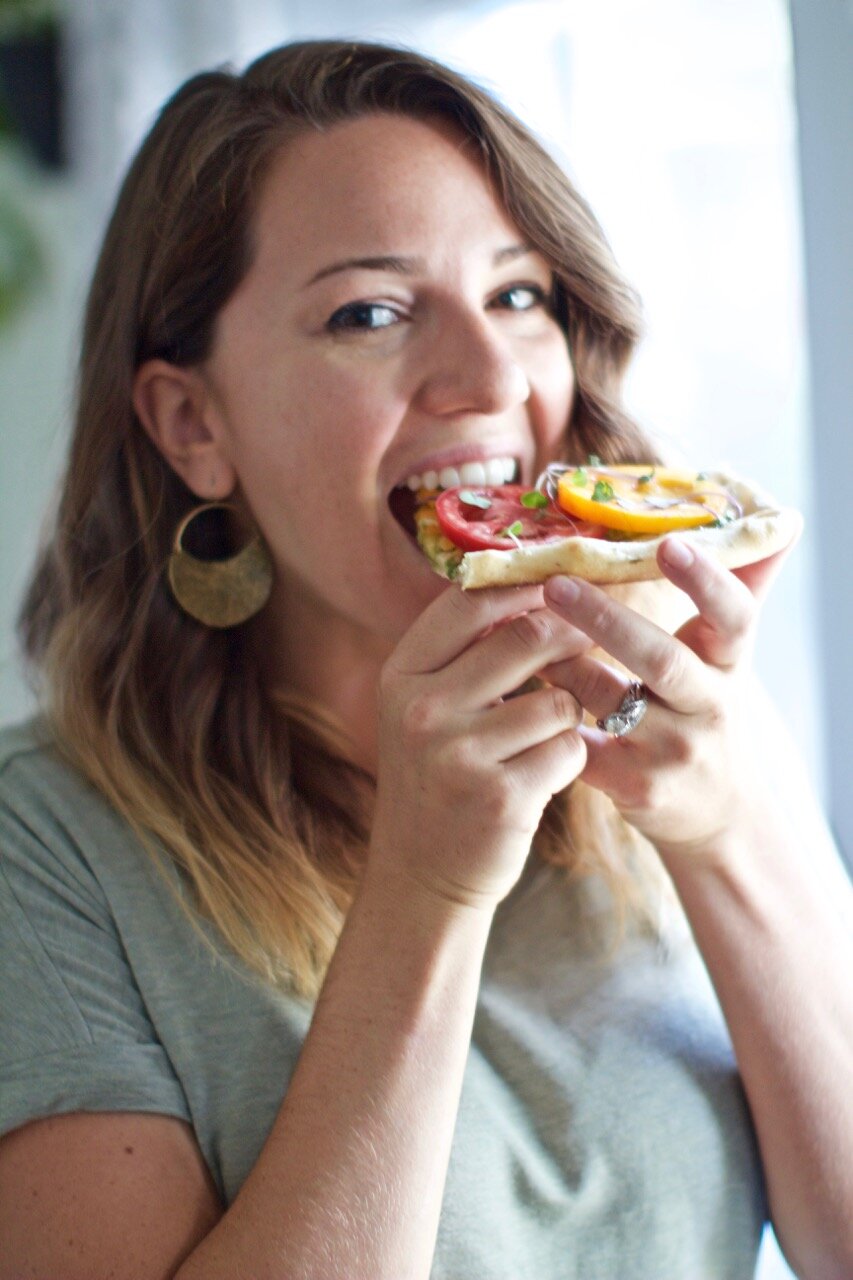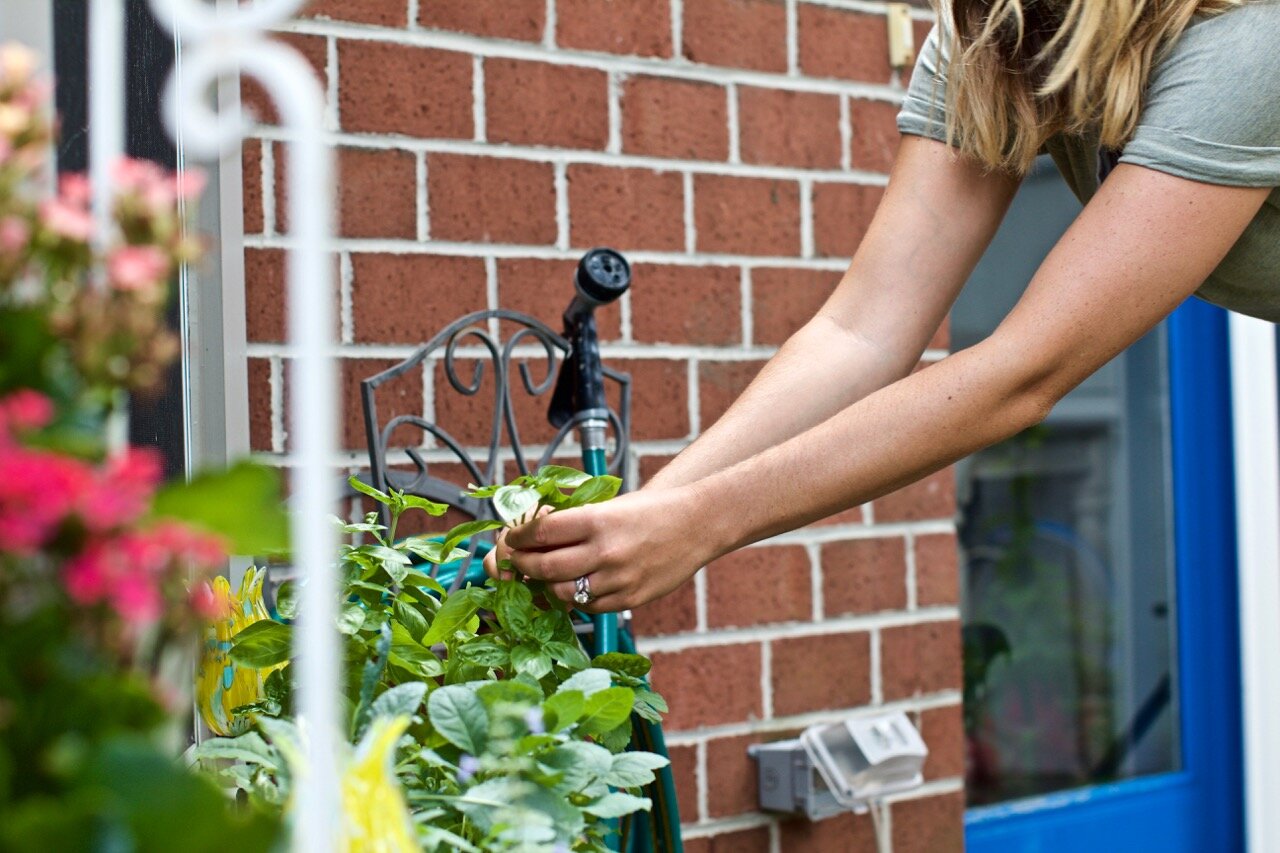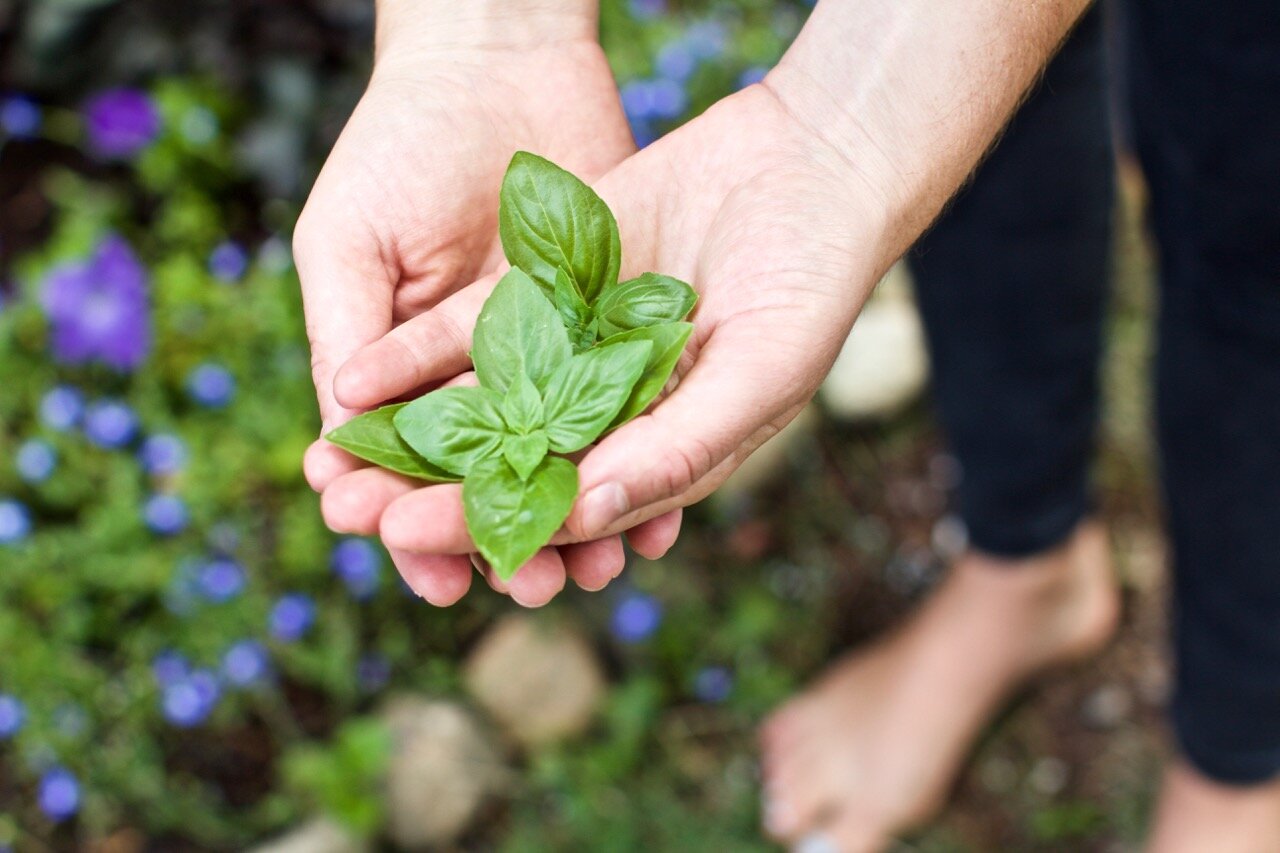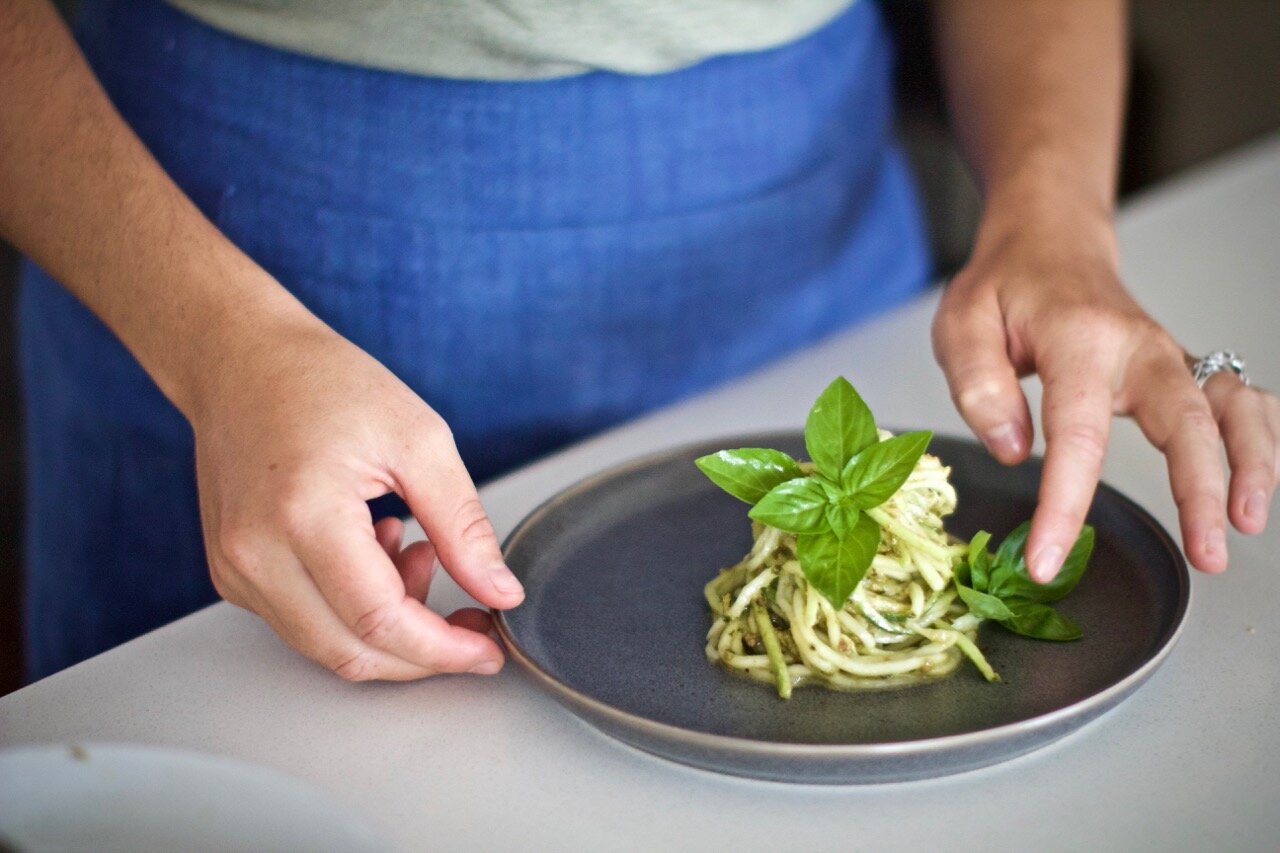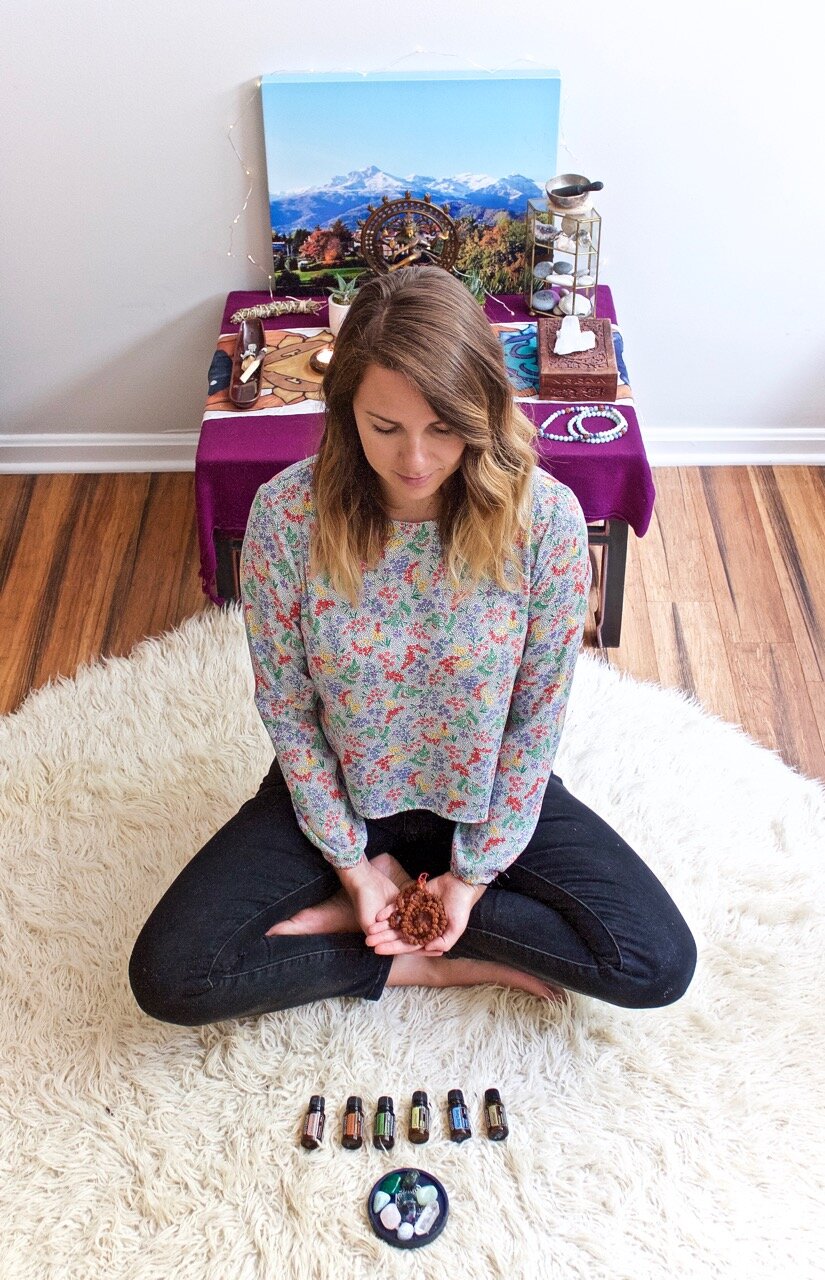Mindful Eating
EDITOR’S NOTE: When regular EB contributor and Zen practitioner, Alex Tzelnic, approached me with a Mindful Eating story, I was instantly intrigued. Who couldn’t use a bit of guidance during the pandemic to help us better shop for food, cook and enjoy it with intention? For our family, the initial quarantine last March created a bit of a panic around food: Would there be food shortages? Was the grocery store even safe? Would we have to cook at home FOREVER? And just how many cans of beans and bags of rice does one family need? As the weeks turned to months and restaurants re-opened in limited capacity, we adapted to regular takeaway orders and by then our fears around the supermarket had waned. But when cases began to rise again around the holidays, that familiar panic returned with a vengeance, not just around how and where to procure our food but what would become of our beloved restaurant industry on the other side of COVID. And without us even noticing—with little else to look forward to at the end of our long days staring at screens—our once-healthy, regular, home-cooked family dinners had morphed into grab-what-you-want “meals” eaten at haphazard intervals, in front of the TV, at our desks or in our bedrooms, decidedly NOT with any sort of mindful intention. Alex’s story has me headed back on the right path, away from distracted, mindless snacking, to rediscover the pleasure of food: buying, cooking, growing and eating it with my family. I hope it will do the same for you.
–SB
Photos by Tina Picz, @vermontfoodphoto
Cultivating healthy eating habits is hard enough when we aren’t in the midst of a global pandemic. It can require intentionality in the way we shop, prep, cook and savor our meals that many people don't feel they have the bandwidth for. Yet research shows that eating mindfully can have powerful impacts on our health and wellbeing. If we could just slow down, pay attention, and relish the processes that go into an activity that awakens every one of our senses multiple times a day, we’d no doubt be more balanced. It turns out you are not just what you eat but how you eat.
But where to begin? There may be many paths to the top of the mountain, yet most of them seem closed right about now.
Natasha Gayl, a local health coach, personal chef and founder of Natasha Wellness, knows first hand how taxing it can be to take on the perceived burden of mindful eating. “Cultivating healthy eating habits during ‘regular life’ can be a feat for some—throw in a pandemic where each meal needs to be cooked by you, add in children being home-schooled, and you have yourself a recipe for extreme stress,” explains Gayl. Yet she also sees mindful eating as an excellent entrypoint into mindfulness at a time when we could all use a little equanimity. “If you're somebody who can't seem to find time to meditate because your mind races too much I recommend trying mindful eating. You'll reap similar benefits!”
Paying attention to our food can begin at acquisition, by being intentional about how we shop. Dr. Christopher Willard, a Harvard Medical School faculty member, author and mindfulness practitioner notes, “As we shop we can consider the journey that these ingredients took to get to our table, thinking appreciatively of everyone from the farm workers to the supermarket employees.” The fact that shopping for our food might look different these days can in fact be an opportunity to invite this kind of forethought. Says Gayl, “Some steps I've taken that I think will help others take the stress out of eating healthily is to learn where to cut corners and where to relish and enjoy the practice.” In order to streamline her home-cooking, Gayl orders food online, utilizing a variety of vendors, including local farms and co-ops like Walden Local Meat. “I like to fill my pantry and freezer with the basics,” says Gayl. “I already feel accomplished knowing that I have a variety of foods to mix and match.”
Jessica Paulson, an executive chef at Boston University, as well as a certified therapeutic chef, agrees that sourcing the right ingredients is half the battle: “Choosing whole, unprocessed foods is the most important part of eating mindfully. It forces us to use our mind to plan how and what we want to do with them.” Of course, once the plan is hatched, next comes the act of cooking, a task so important that the role of cook is one of the senior positions in a Japanese Zen monastery. In fact, the great 13th century Zen master Dogen penned a whole treatise entitled “Instructions to the Cook.” Wrote Dogen, “When you prepare food, do not see with ordinary eyes and do not think with ordinary mind.” This might sound esoteric, but as Willard explains, “As we prep we can enjoy the movements of our body and the color texture of the food. We can cook, as every chef knows, not so much by recipe but by our senses—the smells, textures and sounds give us more information than any recipe.” As Dogen taught, such cooking “requires wholehearted practice.” It is hard to be stuck in a rut of the ordinary mind when engaging all the senses in the act of cooking.
For those concerned that mindful meal preparation must be austere, both Paulson and Gayl emphasize the fun and the flow that can be part of the process. “There is too much pressure to be the next food blogger. There are no rules in my kitchen,” says Paulson. “Cooking is about balance and joy.” Adds Gayl, “My cooking tends to be more of a fly-by-the-seat-of-my-pants experience. If you like cooking each meal each day, put on your favorite tunes and move through the kitchen like water.”
When it comes to eating a meal mindfully, however, a little ceremony goes a long way. Willard makes a point of eating one meal a week mindfully, and often engages in awareness prompts prior to a meal to remind him to explore a particular sensory aspect of it, or simply to cultivate a sense of appreciation.
“I feel like so many of us rush through meals these days,” says Gayl, “This type of attention can be so detrimental to our wellbeing.” Instead, Gayl suggests cultivating a calm environment devoid of our usual distractions, like TV, music and phones. “Eating in peace allows us to honor the food on our plate, be grateful for our company (even if it's just our pup staring at us) and be mindful of when we are actually full.”
As for any specific tips that might help us amateur mindful eaters, Gayl suggests avoiding soup, due to its inherent gulpability. “Choose something that you need a fork and knife for,” she says. “This will naturally slow you down. Maybe it's a steak or a sweet potato or broccolini. When it's time to eat, light a candle, put out the fancy placemats, set up matching dinnerware and uncork your favorite bottle of wine. Whatever it may be, take a big inhale and exhale before your first bite. Then begin. I'm all about making everyday moments feel special.”
Paulson advises keeping in mind a cooking fundamental that sounds much like a koan [a paradoxical anecdote or riddle, used in Zen Buddhism to demonstrate the inadequacy of logical reasoning and to provoke enlightenment]: you can always add to a dish, but you can’t take anything away. The patience required to develop flavors will allow one to slow down and begin to trust the process rather than focusing on the end result of the completed dish.
And of course, it’s all for naught if the process doesn’t bring contentment. Willard recommends beginning with something, or someone, you love. “Why not savor chocolate or other treats? The textures and range of flavors within them. Then try something neutral and go from there. While I know a lot of us are isolated, if you have someone to practice with, in person, online or even in a group, so much the better. Food was never made worse by enjoying it with others.”

